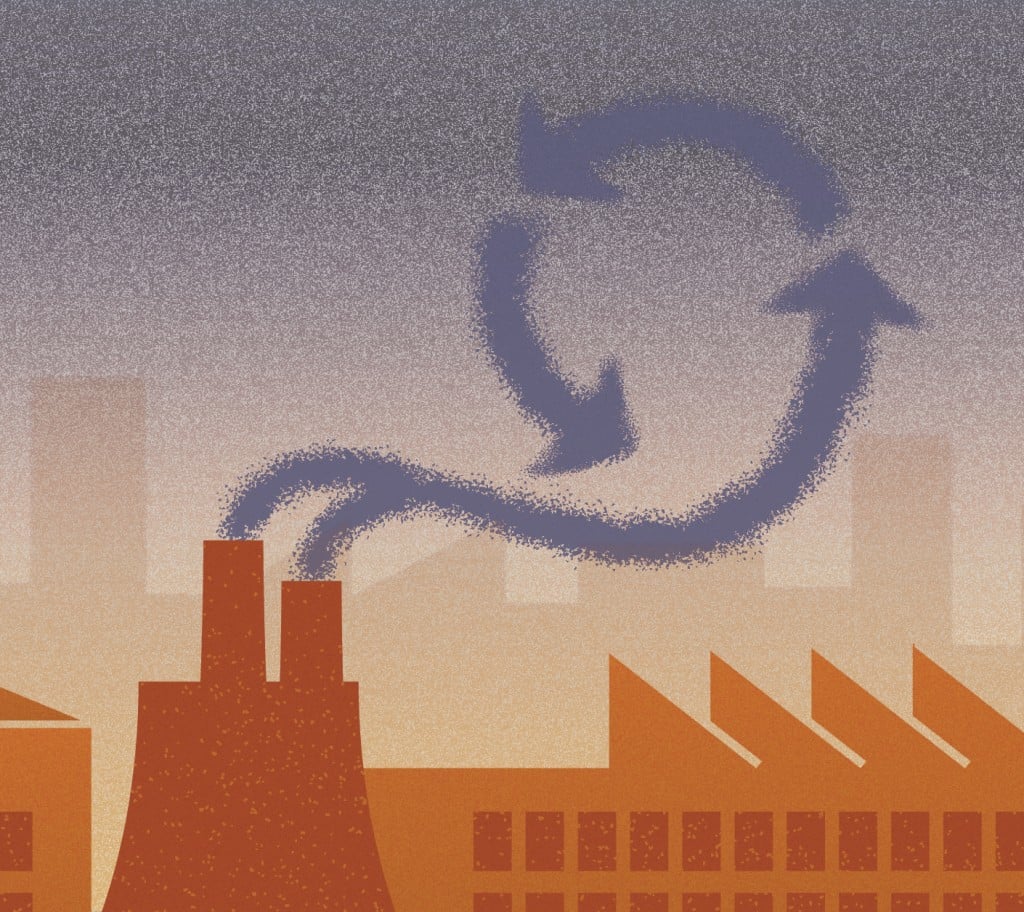 The idea is simple: Capture the carbon dioxide spewed into the atmosphere by gasoline-and-oil-burning vehicles, factories, and power plants, and convert it into fuel, preventing the CO2 from contributing to climate change and creating a sustainable, eco-friendly cycle.
The idea is simple: Capture the carbon dioxide spewed into the atmosphere by gasoline-and-oil-burning vehicles, factories, and power plants, and convert it into fuel, preventing the CO2 from contributing to climate change and creating a sustainable, eco-friendly cycle.
But doing so is not as easy as it sounds. Why? Because it takes an enormous amount of energy to transform CO2 into useful fuels such as methanol. The key lies in catalysts: substances that speed up chemical reactions.
Under a $1 million National Science Foundation grant, Timothy Mueller and Chao Wang are teaming up in search of a new breed of catalysts. They are taking a two-pronged approach to designing nanoparticle-sized alloy catalysts that they contend have the potential to be both more stable and more powerful than the single-material catalysts currently used to convert CO2 to methanol.
“We are using a combined computational-experimental approach to tackle this challenge,” says Mueller, an assistant professor of materials science. He and Wang, an assistant professor of chemical and biomolecular engineering, originally teamed up to work on the problem of converting CO2 to fuel under the terms of a seed grant administered through the university’s Environment, Energy, Sustainability and Health Institute and are continuing that work through the NSF grant.




